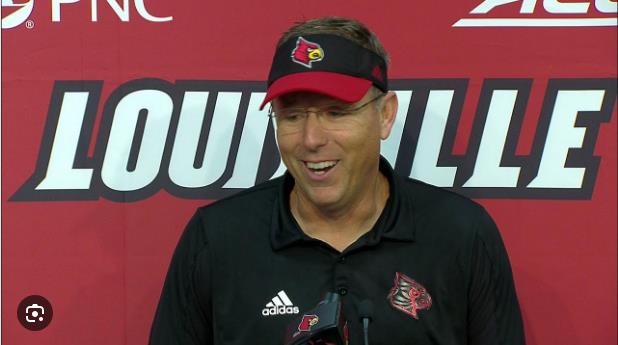BREAKING NEWS:The Toronto Maple Leafs have long been a team with immense potential,
Toronto Maple Leafs have long been a team with immense potential, but their front office has faced criticism in recent years. In the competitive world of the NHL, where every decision can have significant repercussions, the performance and structure of a team’s front office are vital. Unfortunately for the Leafs, various analyses and rankings suggest their front office often finds itself near the bottom compared to other teams. Key Issues with the Front Office Drafting and Player Developmen The Maple Leafs have had some success with high-profile draft picks like Auston Matthews and Mitch Marner. However, criticism arises regarding their overall drafting strategy and player development. Many fans and analysts argue that the Leafs have failed to effectively develop talent beyond their core players. The lack of depth in the prospect pool has left the team vulnerable, especially when injuries occur. Decision-Making The decision-making process within the front office has been called into question multiple times. Some moves, such as questionable trades or contract extensions, have not panned out as hoped. The organization has often prioritized short-term gains over long-term sustainability, leading to a roster that struggles with depth. Coaching Choices Coaching decisions also reflect on the front office. While the team has had talented players, some argue that the coaching strategies and systems implemented have not maximized their potential. The coaching staff’s decisions on line combinations, ice time, and player roles have often led to frustration among fans and analysts alike. Cap Management The salary cap is a critical component of NHL team management. The Leafs have faced challenges in navigating their cap space effectively. While the team has committed significant resources to star players, it has struggled to find the right balance of depth players who can contribute without breaking the bank. This mismanagement often leads to a lack of flexibility in making mid-season adjustments. 5. **Public Perception and Pressure The pressure to win in Toronto is immense, with the franchise carrying a storied history and a passionate fan base. The expectations can lead to hasty decisions or overreactions in the front office, further exacerbating the team’s issues. A lack of patience in building a cohesive team has often resulted in inconsistent performance. Comparisons to Other Teams When compared to other NHL teams, the Leafs’ front office struggles become even more apparent. Teams that have built successful cultures, such as the Tampa Bay Lightning and Colorado Avalanche, have demonstrated a more balanced approach. They have focused not only on star power but also on developing a strong supporting cast and making strategic decisions in the draft and free agency. ### The Path Forward For the Maple Leafs to ascend from their low ranking, significant changes need to occur. This may involve a re-evaluation of their draft strategy, focusing more on player development, and possibly a shift in coaching philosophy. Moreover, enhancing their cap management strategies could provide them with the flexibility necessary to make impactful moves. Ultimately, the front office must prioritize building a sustainable winning culture rather than chasing immediate results. By investing in both talent acquisition and player development, the Maple Leafs can hope to turn their fortunes around and become a true contender in the NHL. The road ahead is challenging, but with the right adjustments, the Leafs can escape the lower ranks and strive for success.The Toronto Maple Leafs have long been a team with immense potential, but their front office has faced criticism in recent years. In the competitive world of the NHL, where every decision can have significant repercussions, the performance and structure of a team’s front office are vital. Unfortunately for the Leafs, various analyses and rankings suggest their front office often finds itself near the bottom compared to other teams.
Key Issues with the Front Office
Drafting and Player Development
The Maple Leafs have had some success with high-profile draft picks like Auston Matthews and Mitch Marner. However, criticism arises regarding their overall drafting strategy and player development. Many fans and analysts argue that the Leafs have failed to effectively develop talent beyond their core players. The lack of depth in the prospect pool has left the team vulnerable, especially when injuries occur.
Decision-Making
The decision-making process within the front office has been called into question multiple times. Some moves, such as questionable trades or contract extensions, have not panned out as hoped. The organization has often prioritized short-term gains over long-term sustainability, leading to a roster that struggles with depth.
Coaching Choices
Coaching decisions also reflect on the front office. While the team has had talented players, some argue that the coaching strategies and systems implemented have not maximized their potential. The coaching staff’s decisions on line combinations, ice time, and player roles have often led to frustration among fans and analysts alike.
Cap Management
The salary cap is a critical component of NHL team management. The Leafs have faced challenges in navigating their cap space effectively. While the team has committed significant resources to star players, it has struggled to find the right balance of depth players who can contribute without breaking the bank. This mismanagement often leads to a lack of flexibility in making mid-season adjustments.
Public Perception and Pressure
The pressure to win in Toronto is immense, with the franchise carrying a storied history and a passionate fan base. The expectations can lead to hasty decisions or overreactions in the front office, further exacerbating the team’s issues. A lack of patience in building a cohesive team has often resulted in inconsistent performance.
Comparisons to Other Teams
When compared to other NHL teams, the Leafs’ front office struggles become even more apparent. Teams that have built successful cultures, such as the Tampa Bay Lightning and Colorado Avalanche, have demonstrated a more balanced approach. They have focused not only on star power but also on developing a strong supporting cast and making strategic decisions in the draft and free agency.
The Path Forward
For the Maple Leafs to ascend from their low ranking, significant changes need to occur. This may involve a re-evaluation of their draft strategy, focusing more on player development, and possibly a shift in coaching philosophy. Moreover, enhancing their cap management strategies could provide them with the flexibility necessary to make impactful moves.
Ultimately, the front office must prioritize building a sustainable winning culture rather than chasing immediate results. By investing in both talent acquisition and player development, the Maple Leafs can hope to turn their fortunes around and become a true contender in the NHL. The road ahead is challenging, but with the right adjustments, the Leafs can escape the lower ranks and strive for success.
The Toronto Maple Leafs have long been a team with immense potential, but their front office has faced criticism in recent years. In the competitive world of the NHL, where every decision can have significant repercussions, the performance and structure of a team’s front office are vital. Unfortunately for the Leafs, various analyses and rankings suggest their front office often finds itself near the bottom compared to other teams.
Key Issues with the Front Office
Drafting and Player Development
The Maple Leafs have had some success with high-profile draft picks like Auston Matthews and Mitch Marner. However, criticism arises regarding their overall drafting strategy and player development. Many fans and analysts argue that the Leafs have failed to effectively develop talent beyond their core players. The lack of depth in the prospect pool has left the team vulnerable, especially when injuries occur.
Decision-Making
The decision-making process within the front office has been called into question multiple times. Some moves, such as questionable trades or contract extensions, have not panned out as hoped. The organization has often prioritized short-term gains over long-term sustainability, leading to a roster that struggles with depth.
Coaching Choices
Coaching decisions also reflect on the front office. While the team has had talented players, some argue that the coaching strategies and systems implemented have not maximized their potential. The coaching staff’s decisions on line combinations, ice time, and player roles have often led to frustration among fans and analysts alike.
Cap Management
The salary cap is a critical component of NHL team management. The Leafs have faced challenges in navigating their cap space effectively. While the team has committed significant resources to star players, it has struggled to find the right balance of depth players who can contribute without breaking the bank. This mismanagement often leads to a lack of flexibility in making mid-season adjustments.
Public Perception and Pressure
The pressure to win in Toronto is immense, with the franchise carrying a storied history and a passionate fan base. The expectations can lead to hasty decisions or overreactions in the front office, further exacerbating the team’s issues. A lack of patience in building a cohesive team has often resulted in inconsistent performance.
Comparisons to Other Teams
When compared to other NHL teams, the Leafs’ front office struggles become even more apparent. Teams that have built successful cultures, such as the Tampa Bay Lightning and Colorado Avalanche, have demonstrated a more balanced approach. They have focused not only on star power but also on developing a strong supporting cast and making strategic decisions in the draft and free agency.
The Path Forward
For the Maple Leafs to ascend from their low ranking, significant changes need to occur. This may involve a re-evaluation of their draft strategy, focusing more on player development, and possibly a shift in coaching philosophy. Moreover, enhancing their cap management strategies could provide them with the flexibility necessary to make impactful moves.
Ultimately, the front office must prioritize building a sustainable winning culture rather than chasing immediate results. By investing in both talent acquisition and player development, the Maple Leafs can hope to turn their fortunes around and become a true contender in the NHL. The road ahead is challenging, but with the right adjustments, the Leafs can escape the lower ranks and strive for success.


